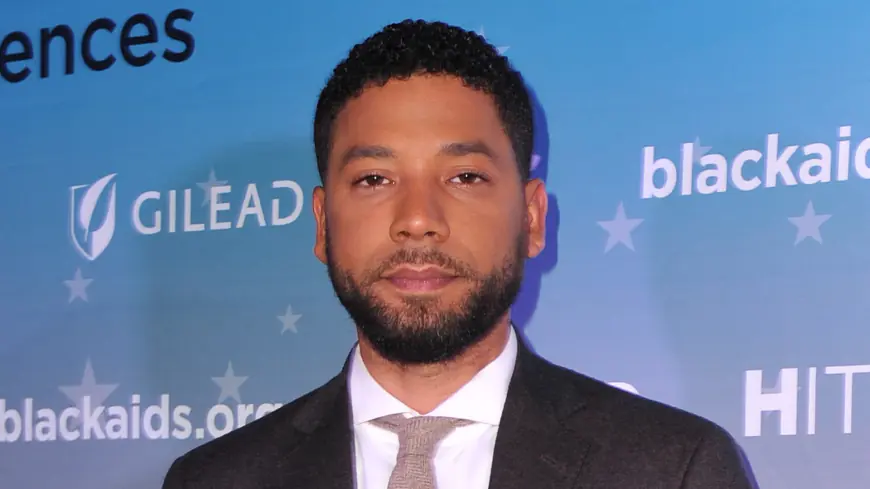Jussie Smollett's conviction in staged attack overturned by Illinois Supreme Court
NOTE: The video in the player above is from Sept. 2024 when the Supreme Court heard Smollett’s appeal The Illinois Supreme Court has overturned the criminal conviction of actor Jussie Smollett, accused of faking a 2019 attack in Chicago. Attorneys for Smollett argued that a previous non-prosecution agreement with the Cook County State’s Attorney’s Office, along with the decision of Cook County State’s Attorney Kim Foxx to drop the initial charges, meant that his conviction should be overturned, and the court agreed in its ruling. Supreme Court Justices Neville, Overstreet, Holder White and O’Brien concurred in the opinion, written by Justice Elizabeth Rochford. Chief Justice Mary Jane Theis and Justice Joy Cunningham abstained from ruling in the case. Smollett’s legal team had moved to dismiss the case on double jeopardy grounds, but the trial court denied both motions. His legal team also argued that he had entered into a non-prosecution agreement with the Cook County State’s Attorney’s Office, but again the trial judge denied the motion, according to the court’s ruling Thursday. During the appeal, Smollett’s attorney, Nenye Uche, argued that a previous agreement with the State’s Attorney’s office should have kept a trial from happening in the first place. Uche told justices that Smollett and his previous attorneys had struck an agreement with Cook County State’s Attorney Kim Foxx that would have him surrender his $10,000 bond and perform community service in return for the actor not being prosecuted. “Prosecutorial agreements that induce a defendant’s specific performance should be enforced,” Uche said. “Irrespective of how unpopular the defendant is in the public eye, a deal’s a deal.” But the deputy special prosecutor in the case maintained the deal not to prosecute didn’t go far enough and allowed Special Prosecutor Dan Webb to convene a grand jury and file a new case against the “Empire” star. “Only a clear, expressed dismissal of charges with prejudice bars subsequent charges in a nolle pross situation,” Sean Wieber said. Prosecutors also held that Smollett had not paid the city of Chicago more than $130,000 in fines and restitution related to the case, meaning he hadn’t fulfilled his obligations under a non-prosecution agreement. The court found that Smollett’s case was indeed subject to the double jeopardy clause in the U.S. Constitution, and that his agreement with the State’s Attorney’s Office should have been honored. They cited “terrible policy consequences” of adopting prosecutors’ stance on filing the charges again, and also echoed previous rulings that reversing course on non-prosecution agreements would “comport neither with ordinary contract principles nor with the more expansive notions of fundamental fairness that control the relations between a state and its citizens.”

NOTE: The video in the player above is from Sept. 2024 when the Supreme Court heard Smollett’s appeal
The Illinois Supreme Court has overturned the criminal conviction of actor Jussie Smollett, accused of faking a 2019 attack in Chicago.
Attorneys for Smollett argued that a previous non-prosecution agreement with the Cook County State’s Attorney’s Office, along with the decision of Cook County State’s Attorney Kim Foxx to drop the initial charges, meant that his conviction should be overturned, and the court agreed in its ruling.
Supreme Court Justices Neville, Overstreet, Holder White and O’Brien concurred in the opinion, written by Justice Elizabeth Rochford.
Chief Justice Mary Jane Theis and Justice Joy Cunningham abstained from ruling in the case.
Smollett’s legal team had moved to dismiss the case on double jeopardy grounds, but the trial court denied both motions. His legal team also argued that he had entered into a non-prosecution agreement with the Cook County State’s Attorney’s Office, but again the trial judge denied the motion, according to the court’s ruling Thursday.
During the appeal, Smollett’s attorney, Nenye Uche, argued that a previous agreement with the State’s Attorney’s office should have kept a trial from happening in the first place.
Uche told justices that Smollett and his previous attorneys had struck an agreement with Cook County State’s Attorney Kim Foxx that would have him surrender his $10,000 bond and perform community service in return for the actor not being prosecuted.
“Prosecutorial agreements that induce a defendant’s specific performance should be enforced,” Uche said. “Irrespective of how unpopular the defendant is in the public eye, a deal’s a deal.”
But the deputy special prosecutor in the case maintained the deal not to prosecute didn’t go far enough and allowed Special Prosecutor Dan Webb to convene a grand jury and file a new case against the “Empire” star.
“Only a clear, expressed dismissal of charges with prejudice bars subsequent charges in a nolle pross situation,” Sean Wieber said.
Prosecutors also held that Smollett had not paid the city of Chicago more than $130,000 in fines and restitution related to the case, meaning he hadn’t fulfilled his obligations under a non-prosecution agreement.
The court found that Smollett’s case was indeed subject to the double jeopardy clause in the U.S. Constitution, and that his agreement with the State’s Attorney’s Office should have been honored.
They cited “terrible policy consequences” of adopting prosecutors’ stance on filing the charges again, and also echoed previous rulings that reversing course on non-prosecution agreements would “comport neither with ordinary contract principles nor with the more expansive notions of fundamental fairness that control the relations between a state and its citizens.”
What's Your Reaction?









































































































